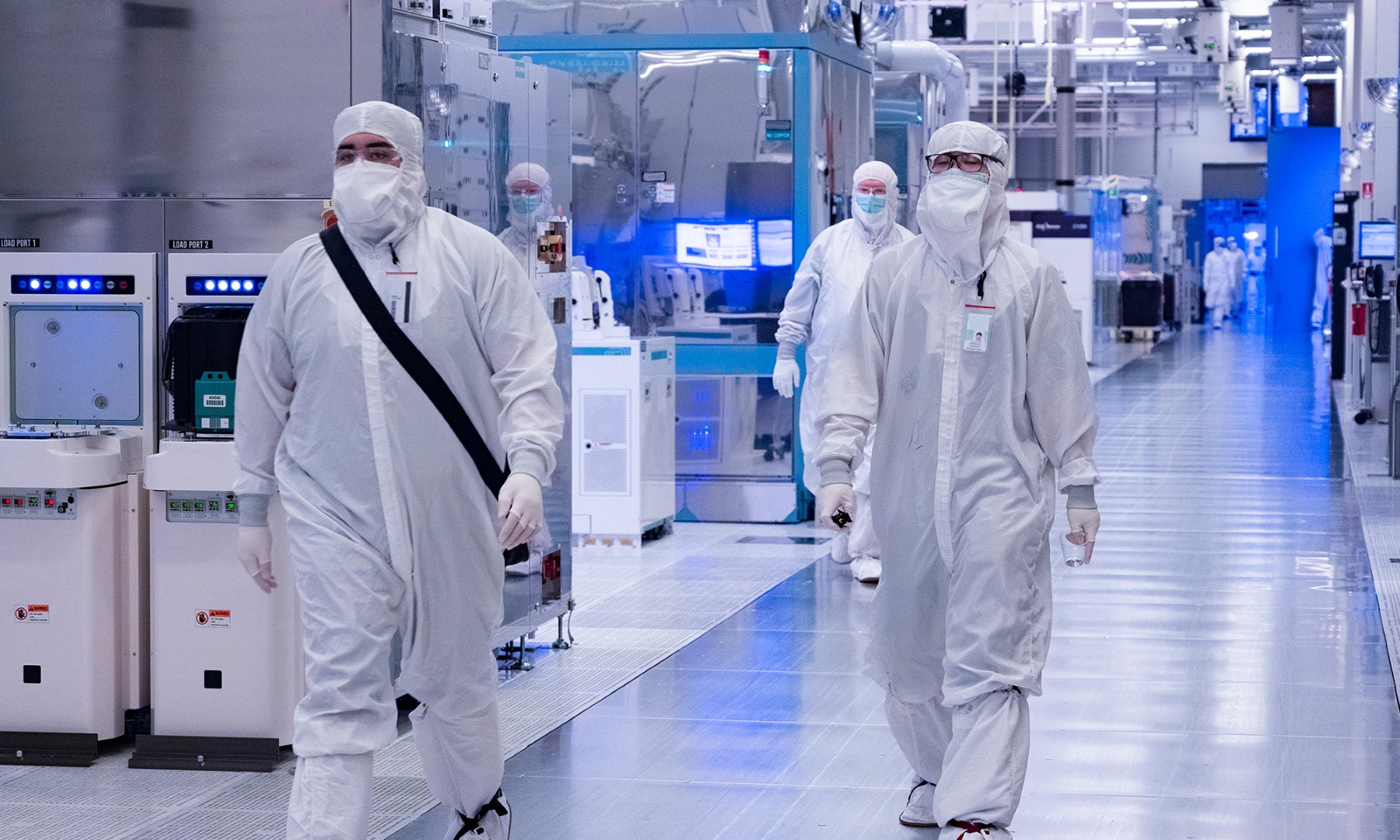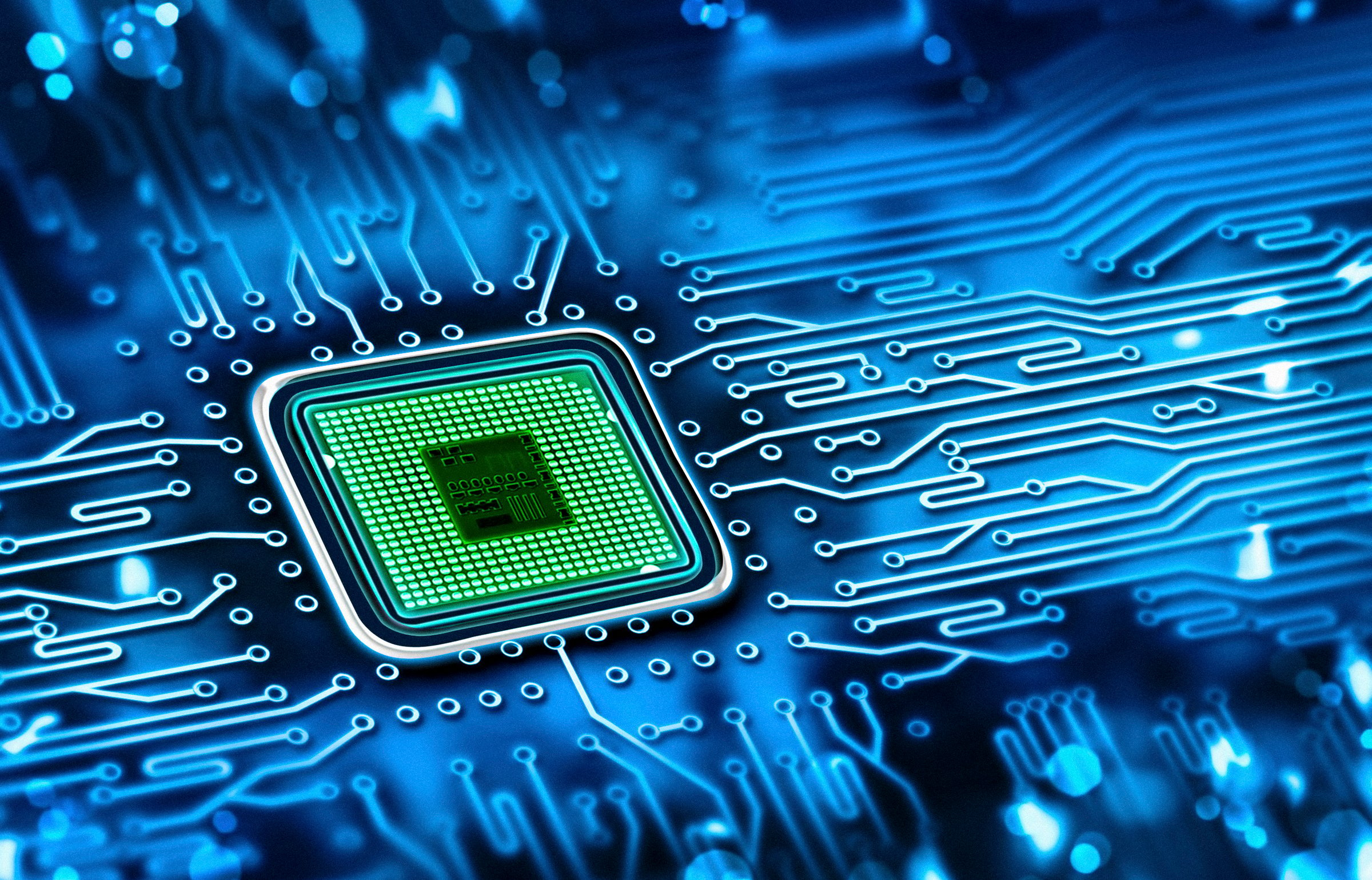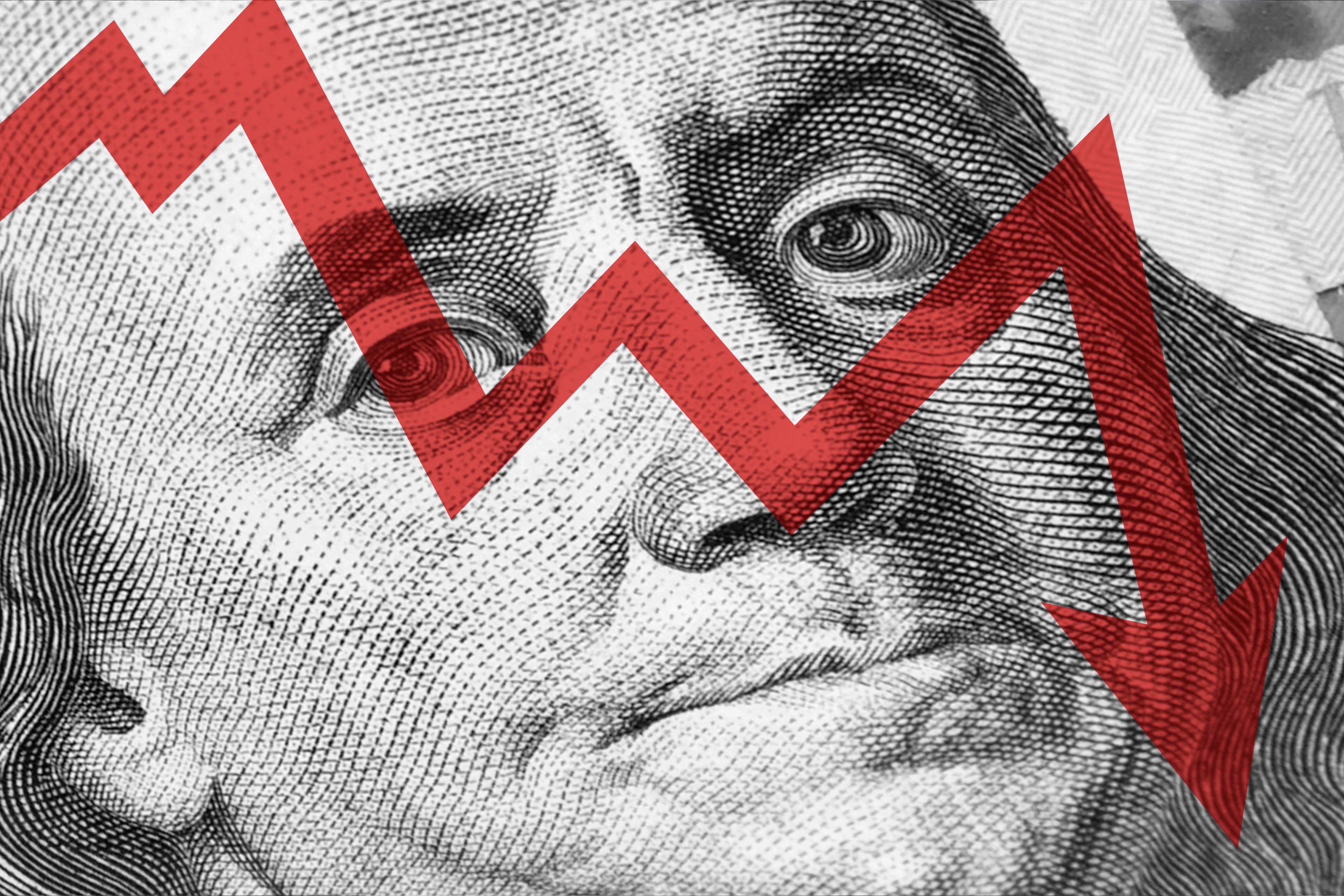Intel (INTC 0.25%) and JD.com (JD 0.60%) are launching a new "lab" for developing new Internet of Things (IoT) technologies for smart retail platforms, including next-generation vending machines, cashierless stores, and advertising experiences. JD claims that the lab will merge JD's big data capabilities with Intel's advanced edge computing technologies to "build a more sophisticated retail ecosystem and enable the wider commercialization of new products and technologies."
This isn't the first time Intel and JD have teamed up. Intel previously merged its RRI edge computing and OpenVINO computer vision technologies with JD's computer vision algorithms to analyze customer traffic and in-store purchasing habits, which helped merchants optimize their shopping experiences for customers.

Image source: Getty Images.
How JD's growth helps Intel
JD is the largest direct retailer by revenue in China and its second largest e-commerce player after Alibaba (BABA 0.80%). Its GMV (gross merchandise volume), or the value of all goods sold, rose 30.5% annually to 394.8 billion RMB ($57.2 billion) last quarter. Its annual active customer accounts climbed 14.6% to 305.2 million.
Unlike Alibaba, which mainly relies on third-party couriers, JD controls its fulfillment and logistics network end-to-end and is taking steps to increase automation within its network through investments into warehouse and delivery robots. JD is also developing a fleet of delivery drones.
JD is expanding its presence in the brick-and-mortar market with its 7Fresh supermarkets and cashierless stores, which counter Alibaba's Hema stores and its investments in a growing list of brick-and-mortar retailers. Both JD and Alibaba rely heavily on smart retail technologies -- like smart shelves and cashierless checkout solutions -- to reduce operating costs and tether shoppers to their online ecosystems.
Providing IoT chips and software solutions for JD's sprawling ecosystem could significantly strengthen Intel's IoT business, which accounted for just 5% of its revenues last quarter. Intel's IoT revenue rose 8% annually during that quarter, but that paled in comparison to the double-digit growth at its PC, data center, and memory chip units.
Intel's IoT ambitions also suffered other setbacks -- including the shutdown of the New Devices Group, which produced wearable devices like smartwatches, fitness trackers, and smart glasses -- earlier this year.
However, Intel is trying to get the IoT business back on track by partnering with its rival ARM to share common IoT communications standards, and working with Alibaba to launch new AI, IoT, and cloud computing solutions. Those moves, along with its new partnership with JD, could simultaneously strengthen Intel's IoT and data center businesses.

Image source: JD.com.
How Intel's partnership helps JD
Purchasing bundles of IoT chips, computer vision solutions, and edge computing services from Intel should be a more cost-effective solution than acquiring those technologies separately. Tethering all those chips and services together would keep JD's brick-and-mortar stores, warehouse robots, drones, and other machines on the same page. That could help JD keep its rising operating expenses -- which constantly throttled its earnings growth in recent quarters -- under control.
Intel's partnership with JD could also be considered a vote of confidence for the company, which saw its stock battered amid an unsettled rape allegation against founder and CEO Richard Liu. Escalating trade tensions between the US and China exacerbated that pain.
Prior to the allegation, JD secured major investments from Walmart and Alphabet's Google. Some investors feared that JD would struggle to secure new partnerships until the allegations were settled, but Intel's tightening bond with JD allays some of those concerns.
But will it move the needle for either company?
Intel and JD's partnership is a win-win deal for both companies, but it won't solve either company's most pressing issues. Intel still faces a chip shortage which is hurting its core PC chip business, and JD still faces a murky outlook, with decelerating growth and unanswered questions about its CEO.






